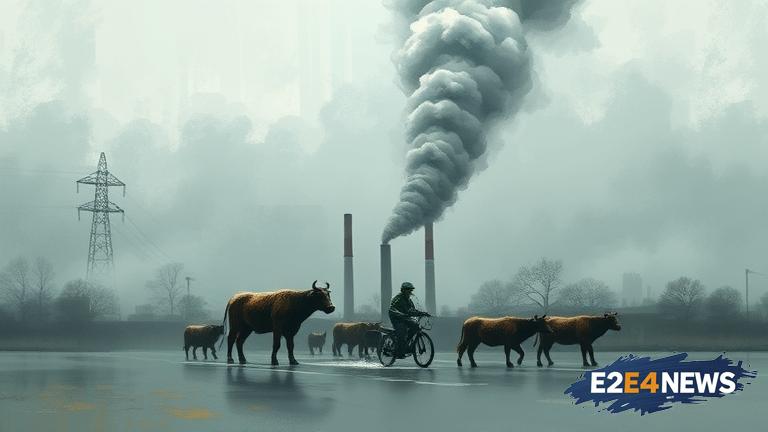Air pollution has long been recognized as a major public health concern, but its impact on animal welfare is often overlooked. However, a growing body of research suggests that poor air quality has far-reaching consequences for animals, from birds and bees to pets and wildlife. The effects of air pollution on animals can be devastating, ranging from respiratory problems and cardiovascular disease to neurological damage and even death. In the United Kingdom, for example, air pollution is estimated to cause thousands of premature deaths in animals each year. The problem is not limited to urban areas, as air pollution can travel long distances and affect animals in rural and natural environments. One of the most significant threats to animal welfare is particulate matter, which can cause inflammation and damage to the lungs and other organs. Nitrogen dioxide and ozone are also major concerns, as they can exacerbate respiratory problems and reduce the quality of life for animals. The impact of air pollution on animals is not just a matter of individual welfare, but also has significant implications for ecosystems and biodiversity. For example, air pollution can alter the distribution and abundance of species, leading to changes in food webs and ecosystem function. In addition, air pollution can reduce the fertility and reproductive success of animals, leading to population declines and even extinctions. The effects of air pollution on animals can also have significant economic and social implications, particularly in industries such as agriculture and tourism. Furthermore, air pollution can have a disproportionate impact on vulnerable populations, such as pets and service animals, which can be particularly susceptible to poor air quality. To address the issue of air pollution and animal welfare, it is essential to take a comprehensive and multi-faceted approach. This can include reducing emissions from vehicles and industrial sources, increasing the use of clean energy, and implementing policies to protect and restore natural habitats. Individuals can also make a difference by making environmentally conscious choices, such as using public transport or carpooling, and supporting organizations that work to protect animal welfare and the environment. Moreover, governments and policymakers must prioritize the issue of air pollution and animal welfare, and take urgent action to address the scale and complexity of the problem. This can involve investing in research and monitoring, developing and implementing effective policies, and providing education and outreach to raise awareness about the issue. Ultimately, the fight against air pollution and its impact on animal welfare requires a collective effort and a commitment to creating a healthier, more sustainable future for all. The consequences of inaction will be severe, with far-reaching implications for animals, ecosystems, and human health. Therefore, it is essential that we take immediate and sustained action to address the issue of air pollution and animal welfare, and work towards a future where all animals can thrive in a healthy and sustainable environment. The time to act is now, and the stakes have never been higher. Air pollution is a threat to animal welfare that cannot be ignored, and it is our responsibility to take action to protect the health and well-being of animals and the environment. By working together, we can make a difference and create a better future for all. The impact of air pollution on animal welfare is a complex and multifaceted issue, and addressing it will require a comprehensive and sustained effort. However, by prioritizing the issue and taking urgent action, we can reduce the effects of air pollution on animals and create a healthier, more sustainable future for all.
